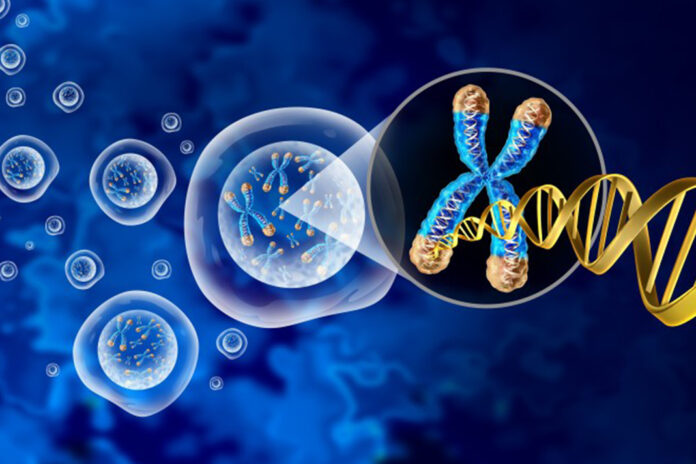A field traditionally nestled within the realms of medical research and diagnostics, is now making a bold transition into the retail sector, heralding a new era of personalized shopping experiences. The scientific advancements in molecular cytogenetics and explores its burgeoning application in retailing, outlining the business potential it harbors for both consumers and retailers.
The traditional retail model is also evolving with technology, with trends pointing towards more personalized shopping experiences, integration of artificial intelligence for better customer service and product recommendations, and the use of augmented reality to try products virtually. Additionally, sustainability and ethical practices are becoming integral to the direct retail model, attracting consumers who value transparency and social responsibility.
As direct-to-consumer continues to grow, its influence on traditional retail and e-commerce strategies will likely push more brands to adopt or hybridize this model, blending direct sales with traditional retail partnerships to maximize reach and efficiency.
Nonetheless, all of these have profound implications for natural health practitioners which not only in diagnosing diseases but also in understanding individual genetic makeups that in turn will influence preferences, behaviors, and even product interactions at retail level. It is not a far fledge to add to “Natural health food store” a new definition that fits with the near future as Natural Health Genetics Retailer, for sure a derivative concept, but pause for a moment and apply these insights to create a tailored shopping experiences, product recommendations, and health and wellness advice, offering a new paradigm in consumer engagement and retention.
The Backbone
The advent of technologies such as fluorescence in situ hybridization (FISH) and comparative genomic hybridization (CGH) has allowed scientists to visualize and map genetic material with unprecedented precision. These technologies, when applied to consumer genetics, can unlock personalized insights that have the potential to revolutionize how we shop and interact with brands.
Retail genetics can transform various sectors including fashion, nutrition, health and wellness, and beauty by providing customized product recommendations based on genetic predispositions. For instance, skincare products could be tailored to genetic skin types, or nutritional supplements could be customized to individual health needs, enhancing product effectiveness and customer satisfaction.
Companies in the forefront of integrating genetic insights into their retail strategy are already seeing positive outcomes, with increased customer loyalty and higher conversion rates. For instance, a nutrigenomics company uses customers’ genetic information to tailor nutritional plans, while a fashion retailer employs genetic insights to suggest apparel that fits the customer’s body type and color preferences.
Challenges and Ethical Considerations
Despite the promising applications, integrating molecular cytogenetics into retailing raises ethical and privacy concerns. The handling of genetic data requires stringent security measures and transparency to maintain consumer trust. Moreover, the accuracy of genetic interpretations and their implications on product suitability need to be communicated clearly to avoid misconceptions.
Future Directions
The field is poised for growth with advancements in technology and data analytics. The integration of AI and machine learning can further refine genetic data interpretation, opening up new avenues for personalized retail experiences. As consumer awareness and acceptance grow, the demand for genetically personalized products is expected to surge, presenting vast opportunities for innovation and differentiation in the competitive retail landscape.
Fact sheet:
Market Growth and Trends
Overall Growth: The market is estimated to grow from $1.8 billion in 2022 to $3.5 billion by 2030, marking a CAGR of 8.7%. This significant growth indicates a robust interest and investment in molecular cytogenetics technologies, driven by advancements in molecular biology that broaden the application scope of cytogenetics.
Segment Growth: The consumables segment is expected to grow at a CAGR of 8.8%, reaching $2 billion by the end of the analysis period. This suggests a steady demand for consumables in molecular cytogenetics, reflecting ongoing research and diagnostic applications.
Instruments Growth: Growth in the instruments segment is adjusted to a 7.7% CAGR over the next 8-year period, highlighting a sustained need for innovative and efficient cytogenetics instruments.
Many ask where our industry is in that field. Developing application with the purpose of ensuring the genetic purity and quality of organic foods, along with enhancing the nutritional profiles of nutraceutical products, presents a burgeoning trend and opportunity.
The integration of molecular cytogenetics in precision agriculture is gaining momentum. This method involves analyzing the genetic makeup of crops to improve yield, pest resistance, and nutritional content, aligning with the organic food industry’s commitment to natural, sustainable farming practices.
The supply chain, manufacturers and distribution all the way to retailers can collaborate with farms that use molecular cytogenetics for crop improvement, offering products that are not only organic but also optimized for nutritional content. This can be a unique selling proposition, highlighting a commitment to quality and sustainability.
Retailers can offer a range of enhanced nutraceuticals that boast superior health benefits, backed by scientific research. This can appeal to health-conscious consumers looking for natural supplements that offer more targeted support for their dietary and health needs.
Educational campaigns to inform consumers about the benefits of molecular cytogenetics in improving the food they consume. This can increase consumer trust and interest in these scientifically enhanced products. The key effort in educating consumers is that Molecular cytogenetics does not inherently alter the organism’s genetic material for the purpose of expressing new traits. It is more about analysis and understanding. GMOs, however, involve the direct modification of an organism’s genetic structure to introduce new traits.








